The ocean is one of the largest living ecosystems on our planet, making up over 70% of the Earth’s surface and providing over 50% of the oxygen we breathe. On 8 June, we celebrated World Oceans Day, recognising its contribution to life on land.
However, with the release of Sir David Attenborough’s documentary film Oceans on 8 May, we are starkly reminded of the fragility that comes with this extraordinary beauty. From coral reefs bustling with biodiversity, to the deep-sea mysteries we’ve barely begun to understand, the documentary impresses what we stand to lose if we don’t act soon.
At the Event Greening Forum (EGF), we subscribe to the United Nations’ 17 Sustainable Development Goals (SDGs), which act as guidance for protecting and preserving both the social and natural world we live and work. SDG 14: Life Below Water talks specifically to the challenges the ocean is currently facing, such as:
- Coastal eutrophication, which is causing algal blooms and dead zones.
- Ocean acidification, which is 30% higher than in pre-industrial times.
- Ocean warming, causing sea levels to rise and affecting marine ecosystems.
- Over-fishing is affecting more than a third of the global fish stock.
Among these challenges, plastic pollution poses a prevalent threat to our oceans’ ecosystems, with 17 million metric tons making their way into the water. Analysts predict this will be two to three times worse by 2040.
In South Africa, we produce around 2.6 million tonnes of plastic waste annually. Of this, only 14% is effectively recycled (Plastics SA), while the remaining 86% ends up in landfills or gets incinerated. Alarmingly, approximately 40,000 tonnes of plastic waste per year enter our rivers and oceans (CSIR), and plastic comprises up to 80% of all visible waste (UNEP Africa Waste Management Outlook).
For those in the events industry, it may be tempting to see the oceans as outside our sphere of influence, especially if we operate in landlocked cities or urban venues. But the truth is that our actions, no matter where we are, flow downstream. “Most of the waste we produce doesn’t get recycled; it ends up in landfills, stormwater drains, or the environment, where it slowly breaks down into harmful microplastics that pollute soil and oceans. And because we don’t systematically collect data on waste volumes from our events, our collective footprint remains under-acknowledged and under-managed,” explains EGF Chairperson John Arvanitakis in his recent John’s Thoughts feature.
The downstream effects of events
What we put into the world – materials, waste, energy, behaviours – eventually makes its way into waterways and oceans. As MICE (meetings, incentives, conferences, and exhibitions) professionals, we have a responsibility to ensure those ripple effects are positive.
Say no to single-use plastics
Plastic pollution is the most visible and pervasive threat to marine life. Sea turtles choking on plastic bags, whales with stomachs full of plastic debris, and microplastics infiltrating the food chain are taking over headlines – symptoms of a global crisis.
Event organisers can help by eliminating single-use plastics at source; ban plastic straws, stirrers, cutlery, cups, and water bottles. Instead, provide reusable or compostable alternatives and clearly marked waste separation bins, or incentivise attendees to bring their own water bottles or coffee cups. Prioritise suppliers who offer bulk dispensers, refill systems, and minimal packaging.
Manage chemical and waste contamination
With outdoor events, especially, litter, cleaning agents, paints, fuel spills, and food waste can all be washed into nearby water systems when it rains. Event organisers can mitigate this by:
- Implementing a waste management plan with clear sorting, collection, and disposal protocols.
- Using biodegradable cleaning products and non-toxic materials.
- Installing barriers around sensitive areas like drains, wetlands, or waterfronts.
- Partnering with waste service providers that prioritise recycling, composting, and safe disposal.
Reduce the event’s carbon footprint
Rising carbon emissions are making oceans warmer and more acidic, disrupting kelp and coral reef ecosystems. While not all event emissions can be eliminated, many can be reduced or offset by choosing local suppliers, reducing travel distances, as well as encouraging public transport, carpooling, or cycling for attendees.
You can also use energy-efficient equipment and renewable power where possible. Opt for LED or natural light, or partner with venues that use solar panels.
The ocean-friendly potential of events
Events bring people together to learn, celebrate and be inspired. Their legacy doesn’t have to be “big waste contributors”; instead, they could be the place where change starts to happen.
During the planning for the 2025 Africa’s Travel Indaba in Durban, South Africa, the EGF suggested a beach clean-up as part of their sustainability initiatives. Similarly, organisers can collaborate with local marine NGOs, aquariums, or conservation groups to create educational exhibits, talks, or activities.
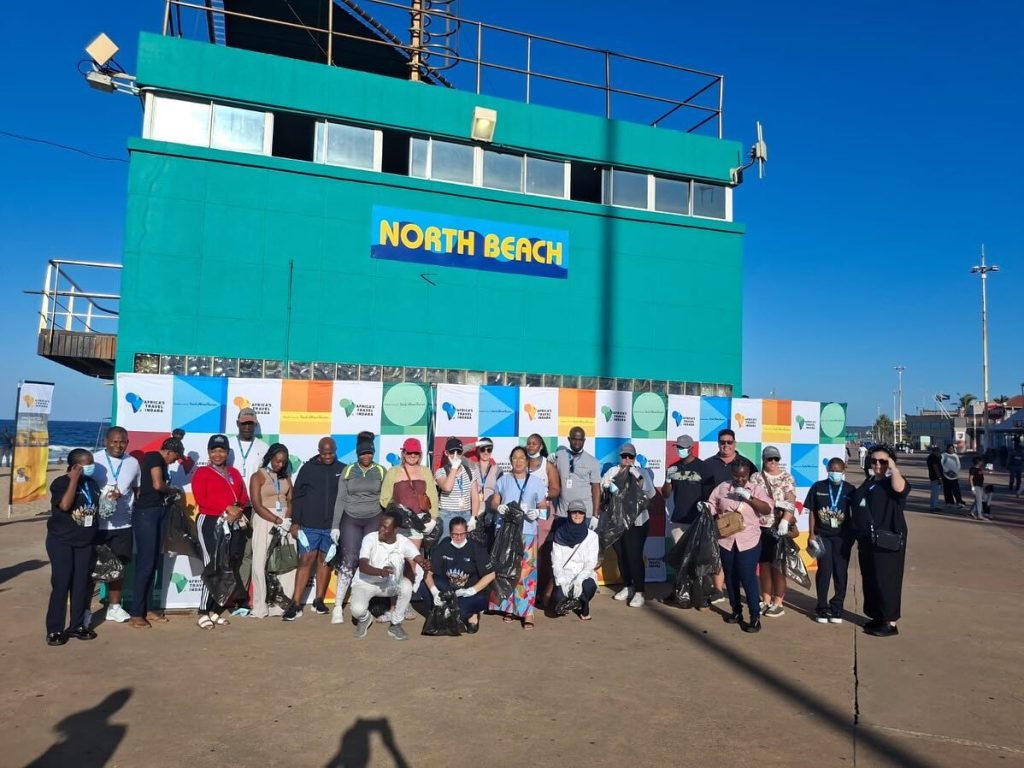
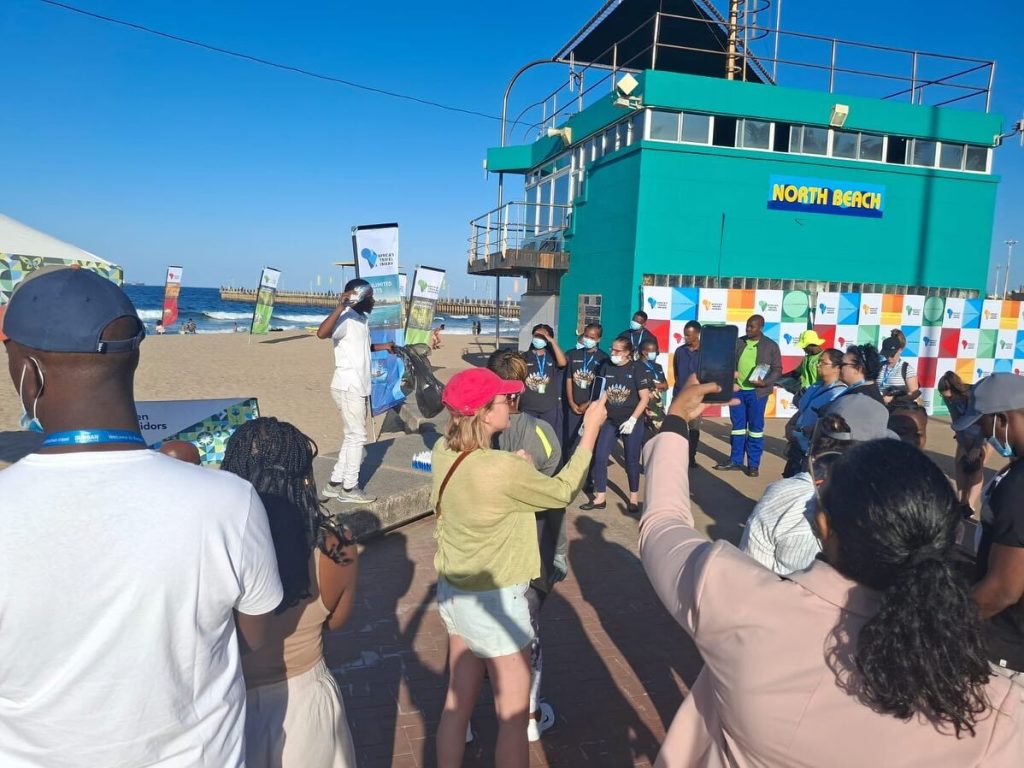
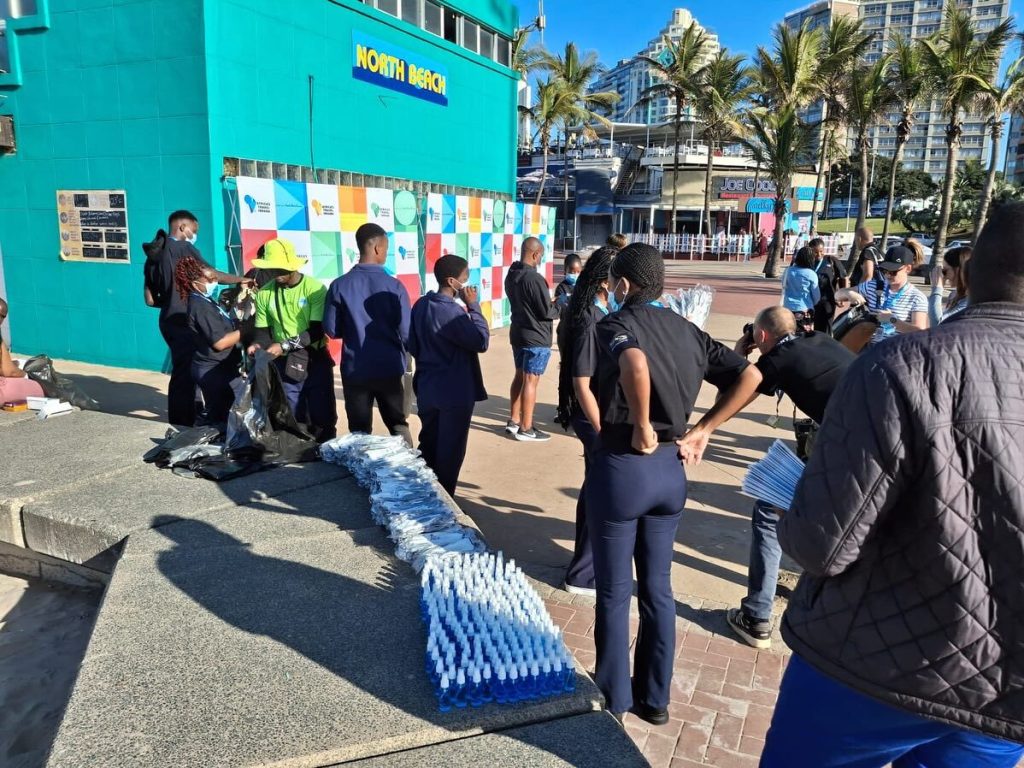
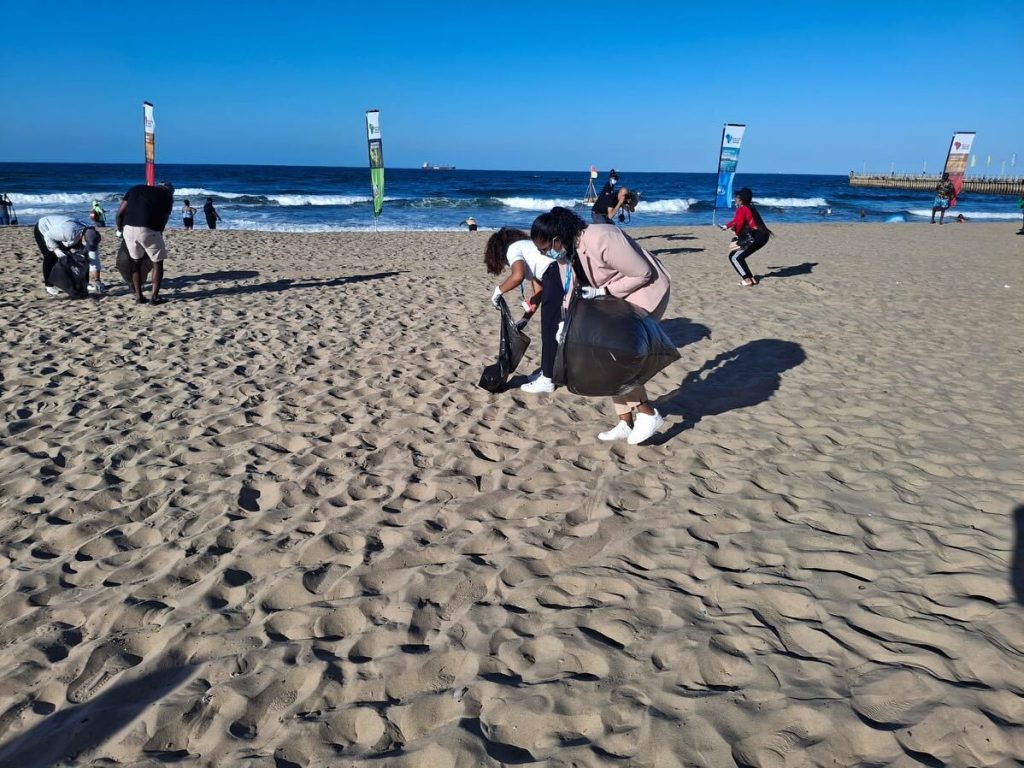
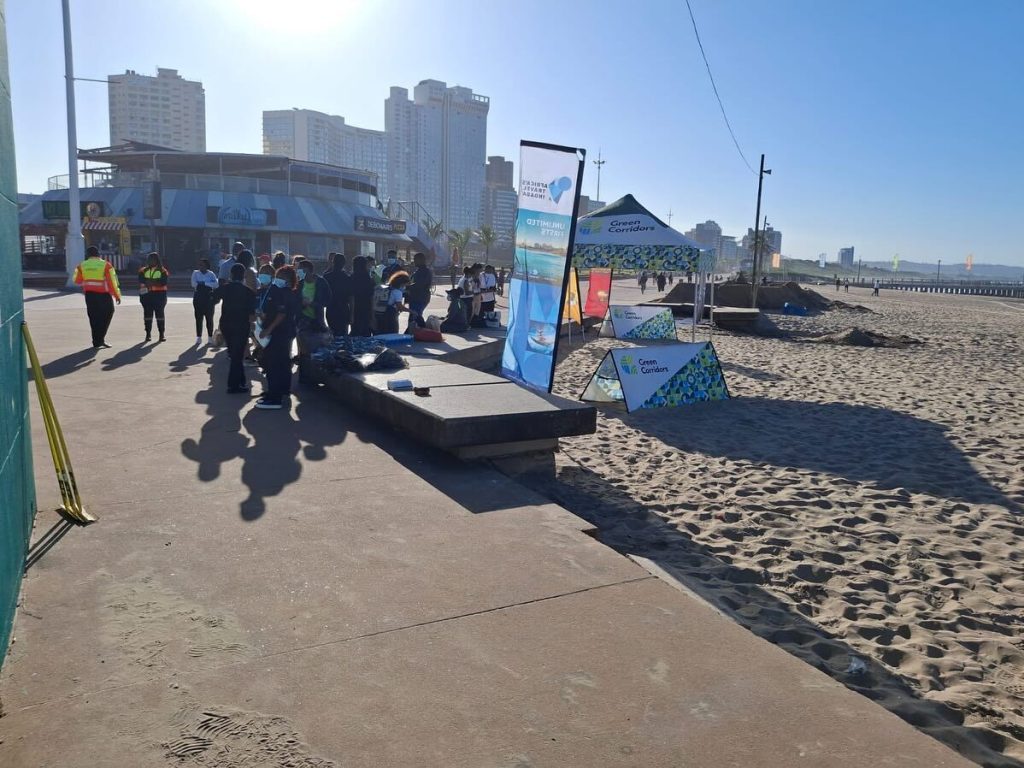
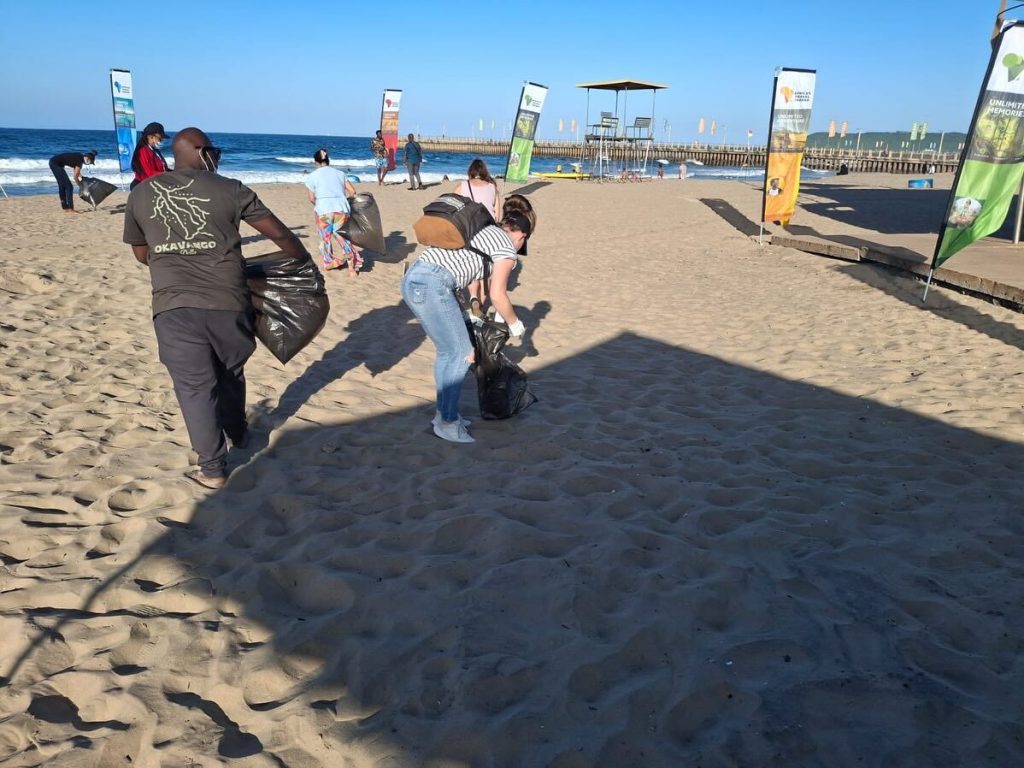
Organisers can also ensure they offer sustainable seafood menus. Look for SASSI green-listed suppliers, and educate attendees on responsible consumption. Additionally, events hosted near coastal or marine areas should take extra precautions to avoid habitat disruption, especially during nesting or breeding seasons.
“We do not lack the solutions. We lack the collective will to implement them,” Arvanitakis emphasises. “The events industry, through collaboration, legislation, and business leadership, can choose to lead. Or we can choose to delay, deflect, and dilute. But make no mistake: history will remember who acted.”
By embedding ocean-conscious practices into every stage of event planning and execution, we can help restore the health of our breathtaking blue oceans, one gathering at a time.
